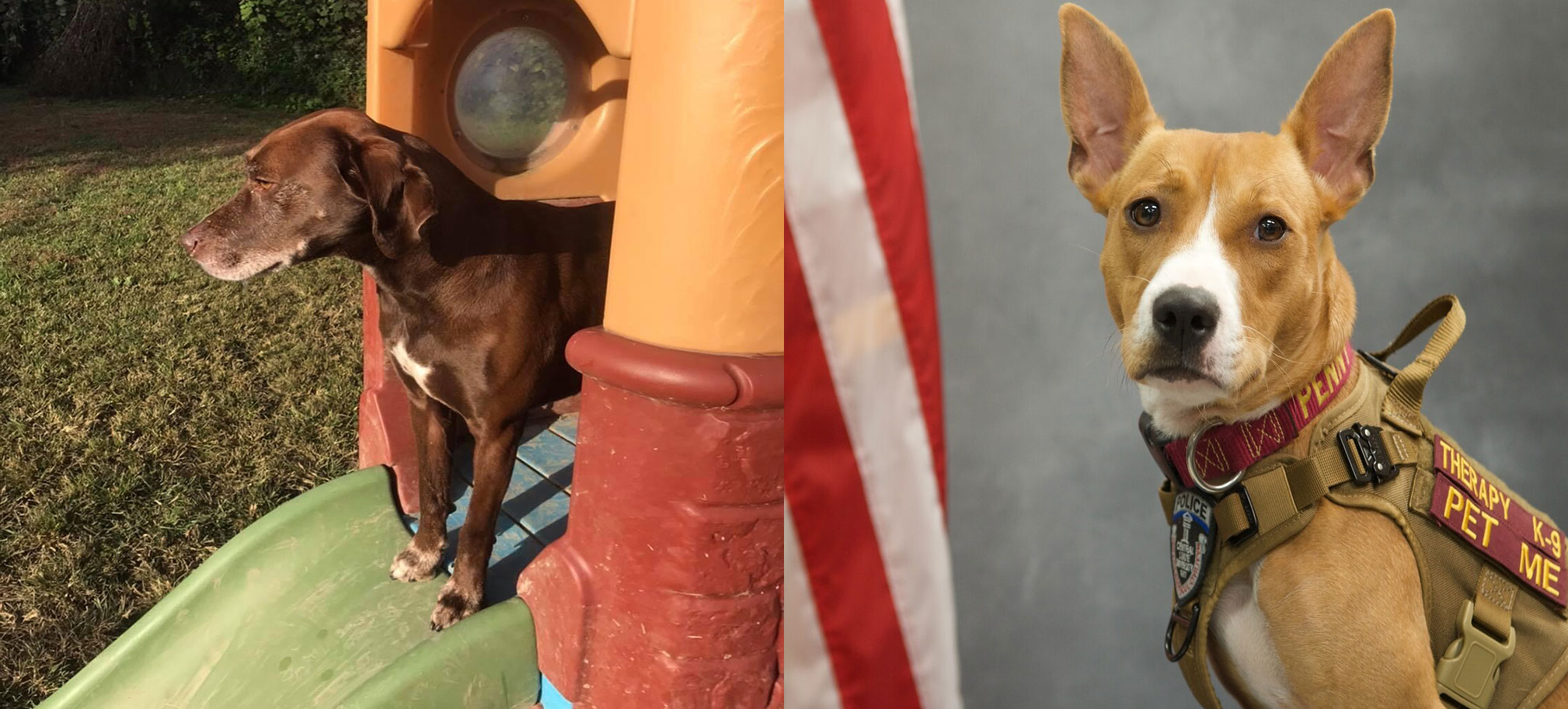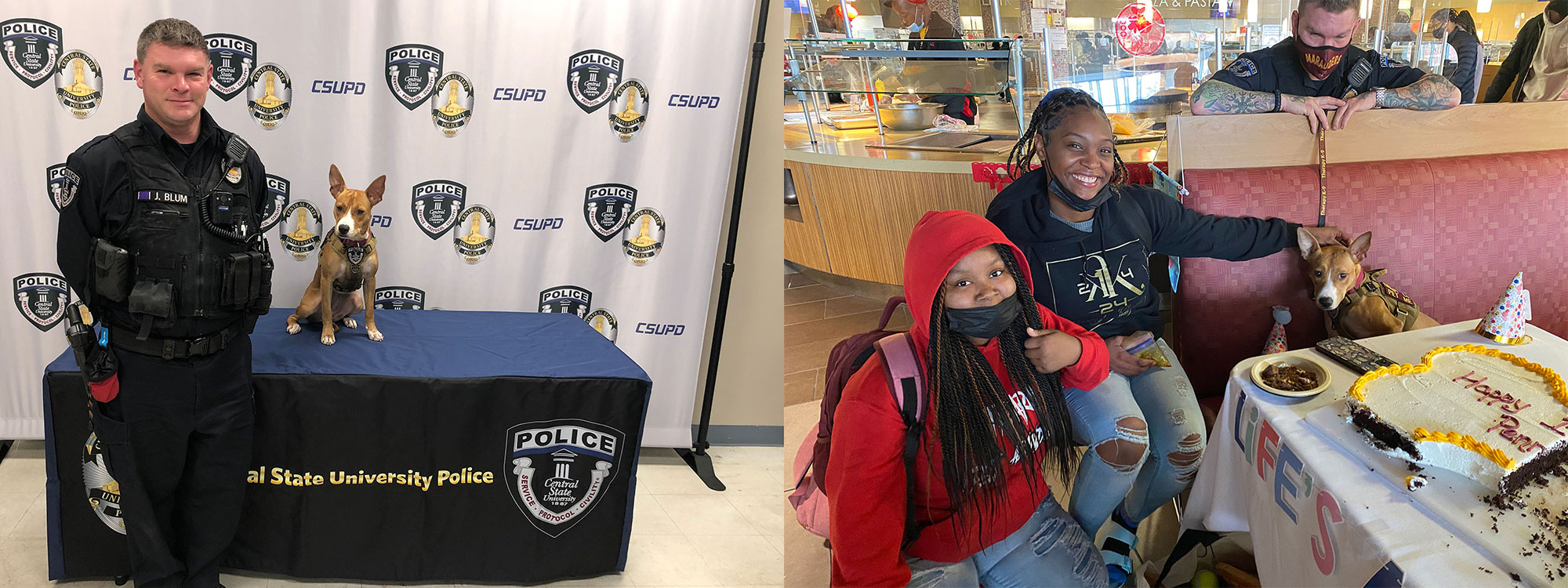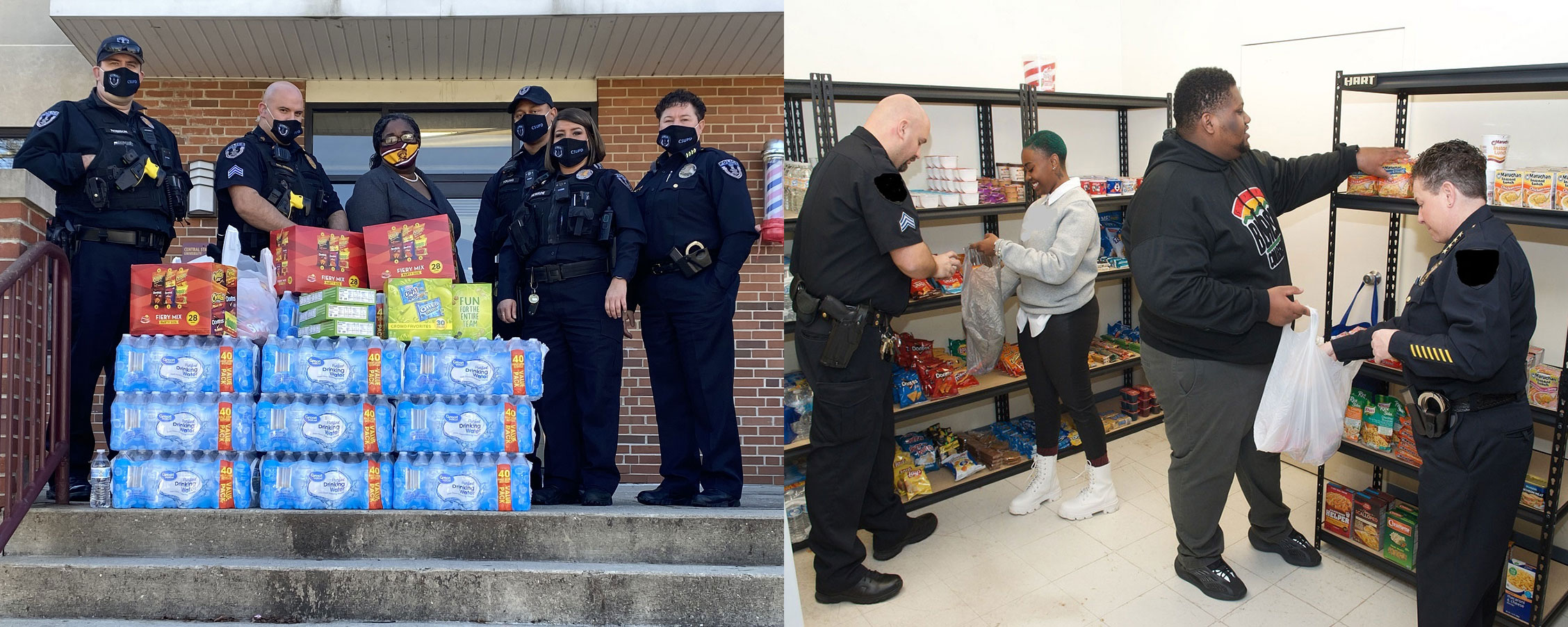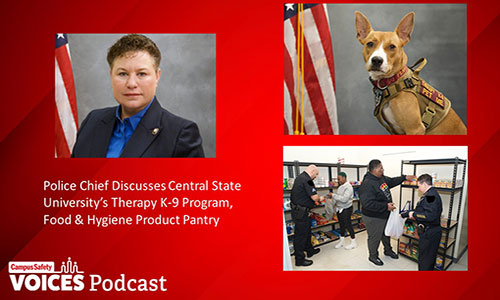WILBERFORCE, Ohio — “To protect and serve” has been the motto of the Los Angeles Police Department since 1963, and that motto has been adopted by many other police departments over the years. Although “protect” is the first verb in the slogan, many officers and departments know the “serve” aspect is just as important — if not more.
Officers with the Central State University Police Department (CSUPD) are passionate about how they serve students, thanks in part to a police chief who strongly advocates for students at the historically Black college.
“Humanity first should be what we all do, but it’s something that we in law enforcement really need to understand — that service comes first,” said Chief Stephanie Hill, a 2022 Campus Safety Director of the Year finalist. “We all wear these belts with all this gear on us. We have rifles and we get the protection, but we also need to understand that’s not what it’s all about. Being a police officer should be because you care about people and want to help.”
One way students are served by the CSUPD is through its Therapy K-9 Program (1:50). Four years ago, Hill’s own dog, Summit, inspired her to establish the program when a student was considering leaving the university due to mental health struggles. She was a first-generation student and issues “just kept compounding,” Hill described. She received a call from the student’s counselor who asked if she would be willing to bring her dog over. Summit doesn’t have formal training, but Hill knew her gentle and calm demeanor would be enough.
“The student just kept talking about a dog — she missed her dog. I [brought Summit] back to the university, and we went over to counseling services, very informal. [Summit] laid on the carpet and the student walked in and immediately fell to the floor,” said Hill. “She hugged my dog, rubbed on her. Of course, my dog just loved it, and for 30 minutes, she cried, laughed — got it all out.”
The student had a few other sessions with Summit and her counselor, and the student ultimately decided to stay. After witnessing the power of a canine, Hill set out in search of a program that would help her find a service dog.
[promo_content slug=”2022-campus-safety-director-of-the-year-winner-announcement-at-csc”]
Community Partnerships Make K-9 Program Possible
Being a small university, Hill hit roadblocks along the way — mainly financial ones. While attending the 2021 Campus Safety Conference last summer, Hill connected with Alice Cary, then-chief of police of the University of Maryland, Baltimore Police Department, and her K-9, Archie.
After sitting through Cary’s presentation on UMBPD’s Comfort K-9 Program, Hill spoke further with Cary and was able to link up with Brevard County (Fla.) Sheriff’s Office Paws and Stripes College. The program trains rescue and shelter dogs to become comfort dogs, and the cost of the dog and training for its handler was free. In Fall 2021, the program was officially established, and Penny, a Basenji, joined CSUPD.
CSU’s Institutional Advancement Team was also instrumental in securing over $50,000 in a private donation to help with the expenses that come with starting a canine program. The funds were used to purchase an SUV with equipment for the transport of Penny and her handler, Officer J. Blum. The school has another anonymous private donor who funds the monthly expenses for Penny.

Chief Stephanie Hill’s dog, Summit (left), inspired her to establish the Central State University Police Department’s Therapy K-9 Program. Penny (right), a Basenji, joined CSUPD in 2021 as a therapy dog.

Penny and her handler, Officer J. Blum; Penny celebrates her first birthday with CSU students and Officer Blum.
Central State Police Open Food and Hygiene Product Pantry
As those working in campus safety and security know, especially in recent years, supporting students and staff mentally and emotionally is essential. However, supporting them physically is just as vital. Hill knows this from personal experience. (19:21)
“When I went to college, I didn’t have enough money to eat three meals a day in our cafeteria. I was able to eat two hot meals, and a lot of the time, I just ate cereal and snacks for breakfast. That’s just because we didn’t have money. I was intentional about not spending years in debt for college,” said Hill. “Even in 2021, 25 years after I graduated college, there is still, if not more, of an insecurity for students and food.”
The idea to establish a food and hygiene product pantry came to fruition after a student went to the police department in search of feminine hygiene products. A male officer who was helping the young woman walked to the on-campus convenience store in search of the products but they were out.
“The next store is about three miles away, so he called me and asked me for these items. I live two minutes away so I said, ‘Come get them,'” recalled Hill. “He told me [what they were for] when he got to the house and I said, ‘These are from you. I don’t have anything to do with this,’ because he took the time — he cared. He wanted to meet her need.”
Hill said the interaction opened up conversations about similar situations where officers were buying students food and drinks or giving them coins for washing machines. Recognizing a need for everyday items, Hill and her team cleared out an office space in the police department to establish the pantry. Officers funded it with their own money for the first six months.
To sustain the pantry, Hill mentioned the initiative to any vendors she came into contact with — whether they are selling walkie-talkies, uniforms or security cameras. She also established a relationship with a local program that provides feminine hygiene products, and doctor and dental offices that donate items like toothbrushes, toothpaste and dental floss.
“[It’s about] just having those connections in the community and just talking to people about what you’re doing. People love to see good things. We have enough bad in the world, and we capitalize on that. We talk about the positive all the time,” Hill said. “Everybody has the right to be clean. Everybody should have a right to have food and not be hungry, especially in this country … If we helped one person with this pantry, it was worth it.”

CSUPD use donated products from the pantry to help students affected by COVID; CSUPD officers and students work together to stock the pantry.









